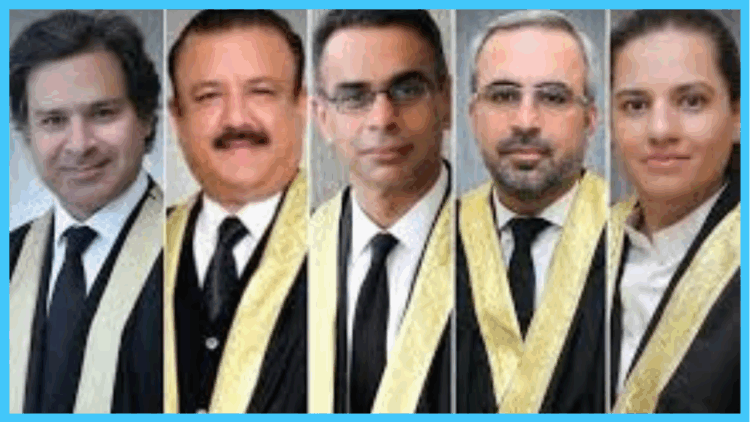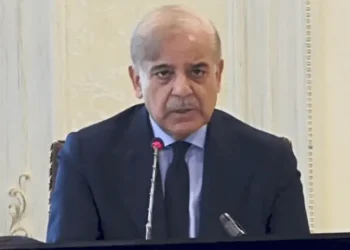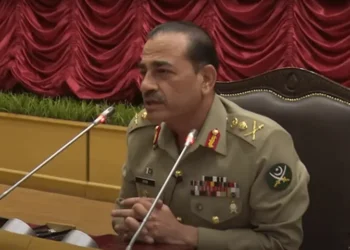By Asif Naveed
ISLAMABAD; In an unprecedented development reflecting widening divisions within the Islamabad High Court (IHC), five sitting judges on Friday approached the Supreme Court (SC) challenging the administrative authority of the IHC’s chief justice.
The petitions were filed separately by Justices Mohsin Akhtar Kayani, Babar Sattar, Tariq Mehmood Jahangiri, Saman Riffat, and Ejaz Ishaq Khan. The IHC, its chief justice, and the Federation of Pakistan were named as respondents.
The judges urged the apex court to declare that administrative powers cannot override judicial functions. They argued that once a bench is constituted and a case assigned, the chief justice of a high court is not authorised to alter its composition or transfer cases at will. They also sought a ruling that the chief justice cannot arbitrarily exclude available judges from the roster or prevent them from performing judicial duties.
Citing constitutional provisions, the petitions maintained that the formation of benches, transfer of cases, and issuance of rosters must be carried out strictly under Article 202 (rules of procedure) and Article 192(1) (constitution of high courts). The petitioners further asserted that the Supreme Court had already struck down the “Doctrine of the Master of the Roster,” and therefore, its application in the IHC was unlawful.
The judges asked the SC to annul the notifications issued on February 3 and July 15 regarding the formation of IHC’s administrative committees, terming them “illegal and mala fide.” They also challenged the approval of the Islamabad High Court Practice and Procedure Rules, 2025, by what they described as an illegally constituted committee, calling the process unconstitutional.
Additionally, the petitions contended that a high court cannot issue a writ against itself under Article 199 and that a division bench lacks jurisdiction to act as if sitting in appeal over a single bench’s interlocutory orders. The judges argued that only the Supreme Judicial Council, under Article 209, has the authority to restrain a high court judge from judicial duties, and no writ of quo warranto seeking removal of a judge is maintainable.
The move comes amid ongoing discord within the IHC since the appointment of Justice Sardar Muhammad Sarfraz Dogar as chief justice. His elevation in February had been opposed by several judges on grounds of seniority, with five judges boycotting his oath-taking ceremony. Later, they formally raised objections to his appointment, questioning its constitutional validity.
Today’s petitions mark the latest chapter in a deepening institutional rift, as the Supreme Court is now set to weigh in on the limits of a chief justice’s administrative authority over fellow judges.





































































